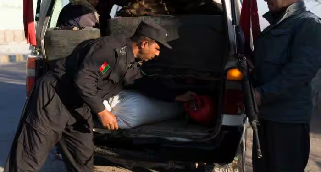Units of counter-narcotics police have foiled attempts to smuggle some 1,000 kg of illicit drugs and objects used in manufacturing heroin in western Afghanistan’s Nimroz province, Provincial Director for Counter-Narcotics Police Abdul Wasi Raihan said . Without providing more details, the official admitted that no one had been arrested.
In similar operations, police apprehended a drug smuggler and discovered 66 kg opium poppy from his possession in Kang district of Nimroz province on Wednesday, district police chief Mawlawi Ahmad Sayed said.
The Afghan caretaker government, which has banned poppy cultivation, processing of drugs and drug trafficking, has vowed to fight the menace until the once-poppy growing country becomes a drug-free nation. Afghanistan, a country deeply affected by decades of war and civil strife, is reportedly home to more than three million drug addicts.
To overcome the challenge, the Afghan caretaker government, which has banned poppy cultivation and drug trafficking, has committed to eradicating drug production and addiction. Currently, a total of 550 rehabilitated drug addicts are receiving training to become skilled workers inside the Aghosh camp, a vocational centre in Pul-e-Charkhi locality on the eastern edge of Kabul city, Xinhua news agency reported.
“I have been living in the Aghosh camp for five months. I am in good health and working on the shoe-making project,” said Faridullah, a recovered addict, who has been learning shoe-making art to open a shop in the future.
Expressing hatred toward heroin and all kinds of illicit drugs, the former drug-addict said using drugs destroys the personality of a person and discards him out of the society. “Using drugs destroys your life and property. They ruin your honour and credibility, both at home and in the society,” he said. “My goal in the future is to open a shoemaking shop after coming out from here, so I can support myself and my family.”
He also had a message for drug addicts, “I urge those addicted to drugs to give up illicit drugs and join a rehabilitation centre. There, they can learn a skill and receive tools they need to work for themselves,” he said.
Former drug addict Sayed Yasar Sadat, 22, a former university student, was studying electro-mechanics at the camp with the hope of becoming an electrician. He planned to open a shop to repair electronic devices once he completes his four-month training course and receives his certificate.
“The duration of each course is four months, and over the past one year and a half, 1,600 individuals have graduated,” said Ezatullah Rahmat, Director of the camp. “After three months of treatment, recovering addicts are transferred to this camp, where 550 recovered individuals are currently receiving training to become skilled workers.”



